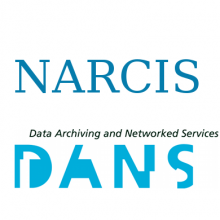Resource information
In some crops the quantity of absorbed salts proved to be strongly influenced by concentration in substrate, in other crops much less so. Ca proportion of total absorbed cations limited absorption, whereas salt uptake was favoured by higher temperatures.
The possibility of limiting absorption was less, the higher the proportion of Ca (or the relation divalent/monovalent cations) in the plant. Salt tolerance of crops seemed to be related to the relation Ca/other cations in the plant.
The less sensitive the plant to salt, the less the influence of high temperatures for the crops studied. This indicated the great importance of osmotic pressure of the substrate and correlated water shortage for growth of crops tolerant to salt. For growth of crops sensitive to salt, osmotic pressure proved much less important. In sensitive crops yield reduction mainly resulted from high salt absorption by the plant and an unfavourable balance of ions in the plant. In cool wet years, with low transpiration, salt in the soil may increase the yield of salttolerant crops in the Netherlands. In the large salty areas of the world this effect is offset by the generally prevailing high temperatures, as in the Netherlands in a warm year.


